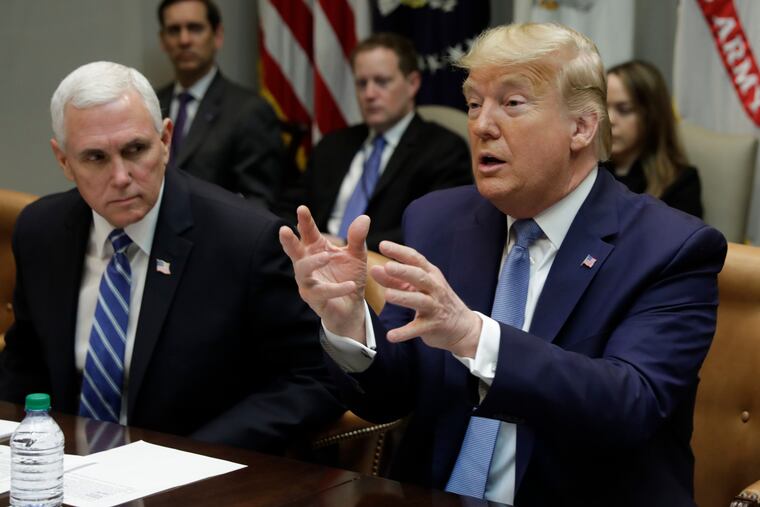Coronavirus epidemic makes the case for universal health care coverage l Opinion
We have the best-funded health care system in the world, but it isn't enough to contain coronavirus.

The Centers for Disease Control and Prevention says that continued spread of the coronavirus in the U.S. is “inevitable.” CNN is now calling it a pandemic, a “virus that can cause illness or death; sustained person-to-person transmission of that virus; and evidence of spread throughout the world.” In the United States, the New York Times reports that as of Monday morning “at least 545 people have been treated for coronavirus in 34 states and Washington, D.C., according to a New York Times database, and at least 22 patients with the virus have died.”
A pandemic does not mean that everyone will get the disease or be seriously sickened by it. Experts believe that “although the virus can be deadly, the vast majority of those infected so far have only mild symptoms and make full recoveries.” The CDC says that “Older people and people with certain underlying health conditions like heart disease, lung disease and diabetes, for example, seem to be at greater risk of serious illness.”
Yet, there may be thousands, possibly millions of Americans who will get the virus, and the U.S. health care system is not ready for it. Problems include lack of equipment to protect physicians, nurses and other health workers from becoming infected themselves.
Congress passed a bipartisan bill, signed into law by President Trump, to provide $8.3 billion in federal funds to prepare and treat patients who are diagnosed with the virus, including funding to develop coronavirus vaccines, treatments and tests; for states to develop their own responses; and for medical supplies of emergency equipment. Yet even with such funding, the U.S. may lack the capacity and equipment to keep up with demand, and a vaccine is many months away from being developed, tested and ready for use.
The U.S. is a very wealthy country, with some of best physicians, public health experts, hospitals, and researchers in the world. Yet the U.S. health care system has flaws that are going to make things worse, the biggest one being we don’t have universal health insurance coverage.
Unlike every other well-off country, the U.S. has a patchwork of public and private insurance coverage, and tens of millions don’t have any coverage at all. The coverage people have often comes with very high deductibles. As a result, many Americans may delay seeing a doctor and getting tested if they have coronavirus symptoms, spreading the disease in the meantime. When they do show up in a physician’s office or hospital, they may be at a more serious and even life-threatening stage of the disease.
They may also face thousands of dollars in out-of-pocket costs for diagnosis and treatment, even when mandated by public health authorities.
How much might you have to pay if you have coronavirus symptoms? No one can say for sure, because it depends on whether you have insurance, how high the deductibles and co-pays are, and what federal and state regulatory requirements apply to your insurance.
Traditional Medicare will cover the coronavirus test and patients “usually pay nothing” for covered diagnostic tests, but treatment beyond the test itself will be subject to Medicare’s usual deductibles and co-payments. The trade association for many private insurers, America’s Health Insurance Plans, has said that its member plans “will take action to ease network, referral, and prior authorization requirements and/or waive patient cost sharing” for testing and treatment of the virus. Not exactly a guarantee the people won’t be stuck with big bills.
Some states are mandating insurers cover testing, and maybe treatment, at no cost, although each states’ authority to regulate “self-insured” plans by employers is limited. In Pennsylvania, the New York Times reported, state insurance commissioner Jessica Altman urged consumers to "contact their insurers or the state insurance department if they have questions.’”
It doesn’t have to be like this. In January, the American College of Physicians, the nation’s largest physician specialty society, called for universal coverage, either through a single payer system, or by giving people the choice of enrolling in a public program or in private insurance with benefits that would include no-cost testing, preventive screening, and visits to a primary care physician.
If the U.S. followed ACP’s advice and enacted universal coverage, no one would delay getting tested and treated for the coronavirus because of cost, and we’d all be healthier as a result. In the meantime, we’ll continue to see people go untested and untreated because of our fragmented system.
Robert B. Doherty is senior vice president of governmental affairs and public policy for the American College of Physicians and a member of the Inquirer’s Health Advisory Panel.